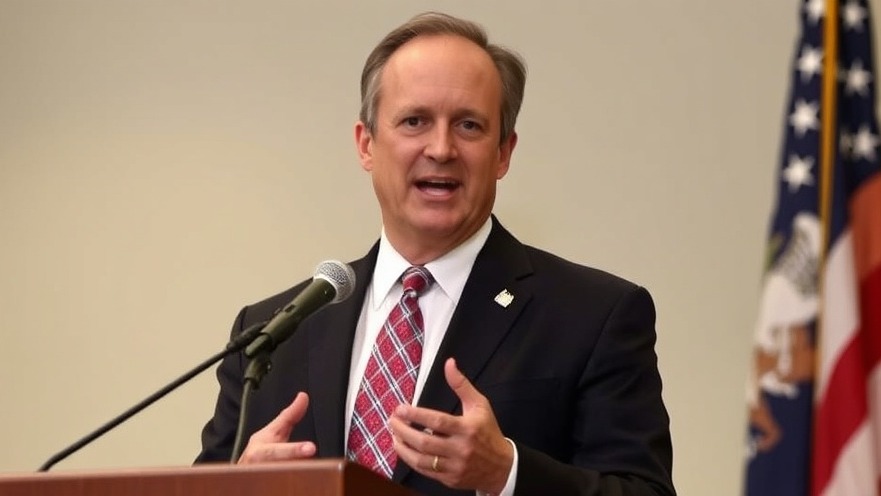
Sexual Harassment Allegations Rock Texas Attorney General's Office
In a shocking turn of events, two senior officials within the office of Texas Attorney General Ken Paxton, Judd Stone and Chris Hilton, resigned following serious sexual harassment allegations. The accusations surfaced in a federal lawsuit filed by former employee Jordan Eskew, who claims that Stone subjected her to not only crude comments but also shared violent rape fantasies during their time working to defend Paxton against impeachment.
Understanding the Allegations
The allegations paint a disturbing picture. Eskew asserts that Stone's harassment intensified while the trio was on leave to support Paxton during his impeachment trial in 2023. According to court documents, Stone routinely berated her, using derogatory terms and demonstrating a reprehensible lack of respect. Meanwhile, Hilton is accused of failing to protect her from Stone’s abuse, creating a toxic work environment that continued unchecked.
Legal Ramifications and Reactions
The lawsuit has sparked outrage and highlighted the critical inequalities within workplaces, even in governmental ones. As the allegations became public, First Assistant Attorney General Brent Webster expressed in an internal email that immediate action was necessary to address the harassment claims. The lawsuit claims that after learning of the allegations, Paxton was both "shocked and appalled", calling for swift measures to confront the accused officials.
What Happens Next? Implications for Leadership
Both Stone and Hilton claimed their resignations were voluntary, arguing they faced a “petty tyrant” in Webster. However, the public narrative surrounding their departure raises questions about accountability at high levels of governance. Given the nature of the allegations, it is expected that the fallout will push for a more stringent approach to workplace conduct within Texas's legal systems. The challenge now lies in restoring trust in the Attorney General's office amidst such serious allegations.
Sexual Harassment and Workplace Culture: A Growing Concern
This incident is part of a larger conversation across the United States regarding sexual harassment in the workplace, particularly in politically charged environments. The culture of silence and fear that often accompanies such allegations can create barriers for victims. As public awareness grows, employees are increasingly encouraged to speak up. The actions taken (or not taken) by those in power can dictate the level of safety and respect employees feel in their workplaces.
Contextualizing the Issue in Texas
Texas's political landscape, marked by its unique laws and cultural attitudes, creates a backdrop where issues of harassment can be particularly complex. Recent high-profile cases have brought such topics into the limelight, prompting discussions about potential legal reforms aimed at protecting employees from harassment. These cases highlight an urgent need for systemic changes in organizational policies and leadership accountability.
A Call for Better Practices and Policies
The resignation of high-profile figures should serve as a signal for Texas leaders to reevaluate policies and practices surrounding sexual harassment. Establishing clear protocols for reporting and addressing allegations is imperative in fostering a supportive environment. The Texas office of the Attorney General must lead by example, not merely in words but through actionable commitments to reform.
In conclusion, the events surrounding the resignations of Judd Stone and Chris Hilton open a crucial dialogue on workplace harassment in Texas. As public scrutiny continues, transparency and accountability will be paramount in restoring credibility to the Attorney General’s office. If this situation resonates with you, it may be time to advocate for clearer lines of communication and enhanced protections against harassment in all workplaces.
 Add Element
Add Element  Add Row
Add Row 



Write A Comment